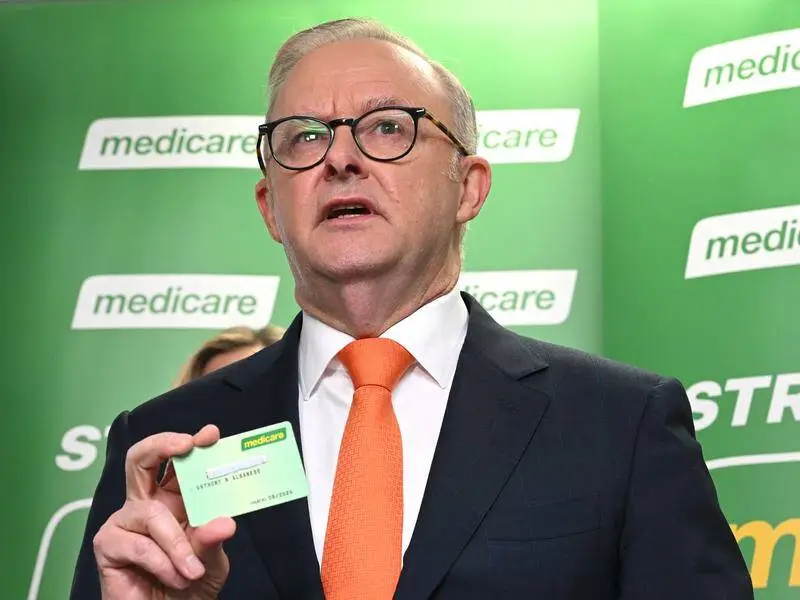Physical Address
304 North Cardinal St.
Dorchester Center, MA 02124
Physical Address
304 North Cardinal St.
Dorchester Center, MA 02124

This article is reproduced from the WeChat public account: Australian Red Link
Australia’s big good news! In the future, it will not only be free to see a doctor locally, but also no reservation is required!
Previously, a Chinese girl had a sudden high fever while traveling to Australia and accidentally experienced this new policy. She was so surprised that she couldn’t believe it when she got the bill.
Yes, there are 50 new clinics in Australia, and medical treatment is free and no appointment is required!

People who live in Australia know that in the past, seeing a doctor often means long queues. Due to the priority system for acute and severe illnesses, non-emergency patients may have to wait hours or even longer before they can see a doctor. This not only makes ordinary patients feel inconvenient, but also puts the hospital’s emergency department under long-term pressure.
Now the situation has changed. The Australian government announced that it would fulfill its promise to build 50 new Medicare emergency nursing clinics (UCCs) and achieve free medical treatment and no appointment required.

Since the first batch of openings in June 2023, 90 UCCs have been put into use nationwide. As of August 4, 2025, the total number of patients has been received by more than 1.8 million, of which more than 355,700 have been received by 22 clinics in New South Wales.
In previous elections, the Prime Minister promised to build 50 more clinics by mid-2026. Once operational, 80% of residents are expected to reach the nearest UCC within 20 minutes’ drive.
At present, bidding for these new clinics has been launched, and places such as Chatswood, Dee Why, Marrickville and Burwood are all under preparation.
Bid eligibility is open to general practice clinics, community health centers and Aboriginal health institutions.

It is worth mentioning that many UCCs will extend their business hours and are open seven days a week, and all patients can enjoy full reimbursement.
These clinics are positioned to fill the gap between GP and hospitals, and provide fast and free medical services to patients who do not have GP and do not go to the emergency department.
Conditions that UCC can handle include: fever, sore throat, ear infections, small sprains or strains, minor burns, allergies, mild asthma, diarrhea, and quick screening of COVID-19 and influenza.
Conditions that are not suitable for treatment in UCC include: severe trauma, major bleeding, conditions requiring hospitalization or surgery, chronic disease management, as well as pregnancy check-ups and childhood vaccination.

Data shows that in NSW, more than 22% of UCC visits occur outside normal working hours, with more than a quarter of patients traveling on weekends, and one in five of their weekday visits occur after 5 p.m.
In addition, one in four UCC patients are adolescents under the age of 15, meaning this model has brought more convenient medical treatment options for Australian families.
Australian Health Minister Mark Butler said that whether it is urgent or continuous medical needs, Medicare will benefit every community and every Australian, driven by the current government. It is worth noting that this benefit not only covers local residents, but even tourists who come to Australia to travel can benefit from it.
Chinese tourists fell ill during a trip and experienced free diagnosis and treatment!
“Mai Mai” from China recently suffered a high fever while traveling in Melbourne. The originally planned holiday was disrupted. But to her surprise, she still received completely free medical services locally without a medical insurance card, no appointment, or even travel insurance.

She described that this visit was not only formal but professional, and even more efficient than expected. It was the Easter holiday, and the surrounding GP clinics were either closed or full, so she once considered going directly to the hospital.
But later I saw someone sharing UCC’s experience on social platforms, and mentioned that there is no need for reservations, no Medicare or insurance, and it is open seven days a week. There are 27 points in Victoria. For her anxious at the time, this was simply a life-saving straw.

After arriving at the clinic, the front desk first arranged a quick screen for the COVID-19 pandemic, and then guided her to scan the code to fill in the information. She did not require a passport or medical insurance card throughout the process. The nurse then conducted a preliminary examination, including taking body temperature, blood pressure and inquiring about medical history.
Not long after, she met the doctor. The doctor asked about the symptoms in detail, had a throat examination and auscultation, and slowed down her speech, encouraging her to use translation software to help understand.
Finally, the doctor judged it as a viral infection and recommended antipyretics and rest. The entire visit lasted about 40 minutes, and the doctor and nurse were very patient and friendly.
Mai Mai later shared his experiences with Xiaohongshu, which triggered a lot of discussion among netizens.






Many people said that they had also visited UCC and did not need to pay. The experience was good, and the doctors and nurses were very friendly.
She even asked about the fee at checkout, and the front desk replied with a smile: “No, it’s all covered.”
Some netizens also reminded that UCC cannot replace GP, and its service scope is limited and can only deal with problems such as mild infection, burns, suspected fractures or sprains. More serious conditions will be referred.
Australia has always been known for its sound public medical benefits, and the further expansion of UCC means that more community residents and tourists can enjoy universal medical services, and high-quality health resources are becoming within reach.
Related readings: